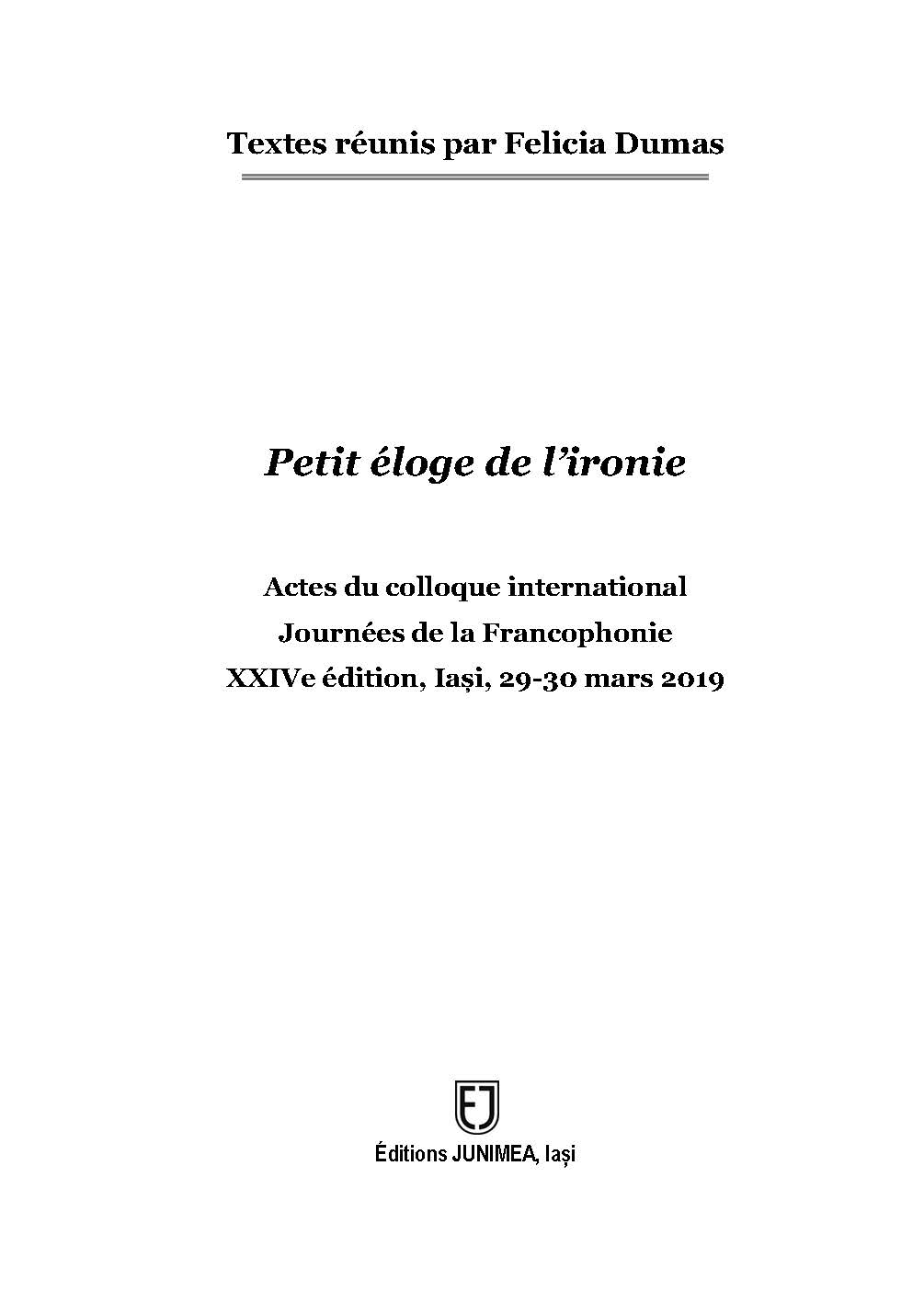Humour, ironie et auto-ironie chez Marie Desplechin, auteure de littérature de jeunesse
Humor, irony and self-irony in Marie Desplechin, author of children's literature
Author(s): Roxana Matei
Subject(s): Language and Literature Studies, Applied Linguistics, Studies of Literature, French Literature
Published by: Editura Junimea
Keywords: comic; humour; irony; satire; young readers; taboo topics;
Summary/Abstract: The comic has been an integral part of youth literature since the 19th century, when Hetzel and Hachette began to publish books with the purpose of teaching through entertaining. It is difficult to give precise definitions to the comic, the comic being confused with humor. Nowadays, the comic is perceived by children from the earliest years of life, the authors taking into account the power of understanding of each age. The stories for the little ones are full of simple word games, provoking a colorful, naive, spontaneous laugh. The approach of young children is self-centered, they laugh and have fun, getting into the skin of the characters. The comic relaxes and surprises them, but it does not make them want to dig deeper or wonder why it suddenly intervenes in the story. As for the teenage readers, their relationships to the various facets of comics change. For them, the comic has no longer the role of just laughing. It can also boast of its power of dramatization and contest.
- Page Range: 254-261
- Page Count: 8
- Publication Year: 2019
- Language: French
- Content File-PDF

